St. Stephen’s CE Primary School
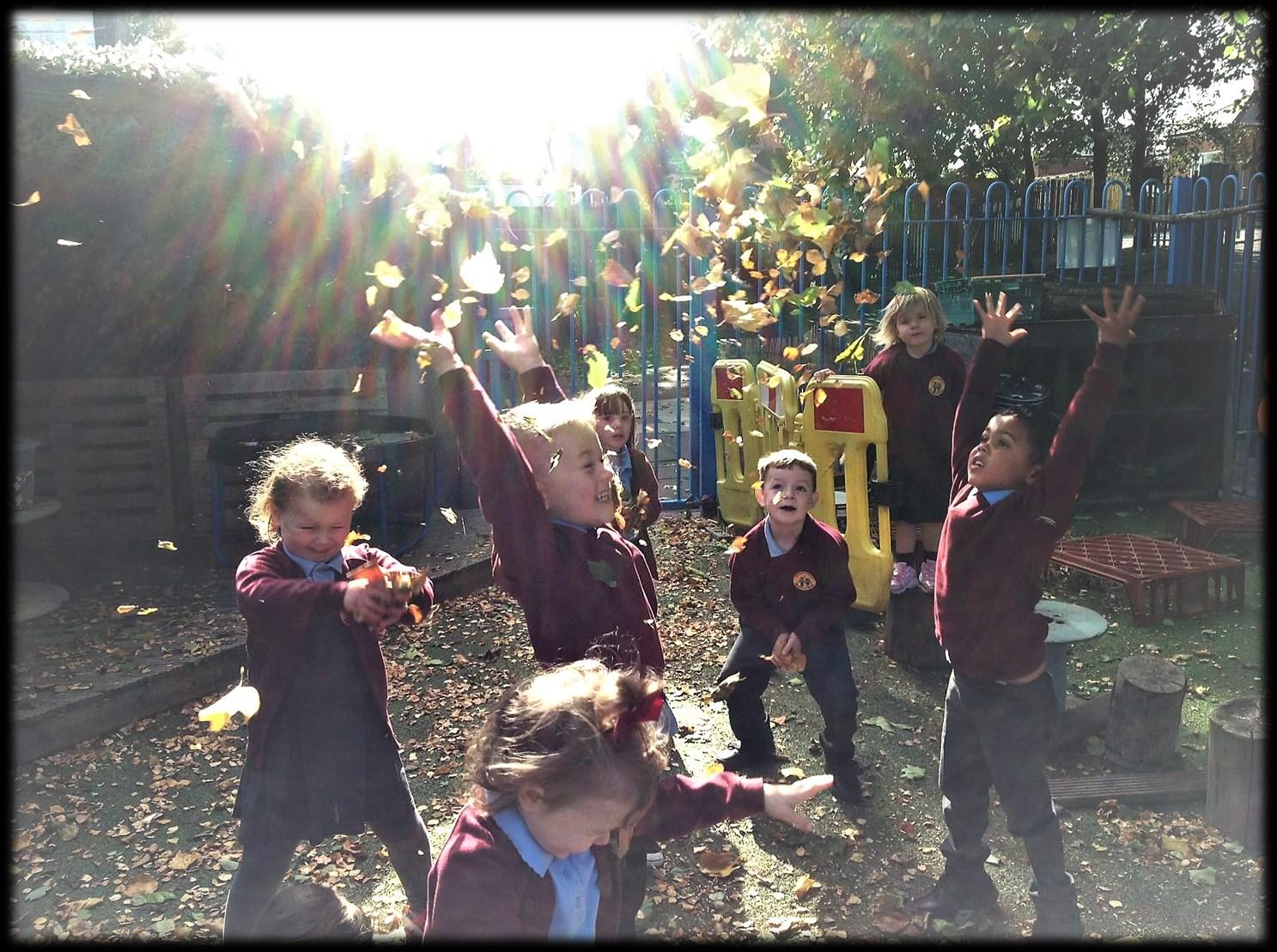
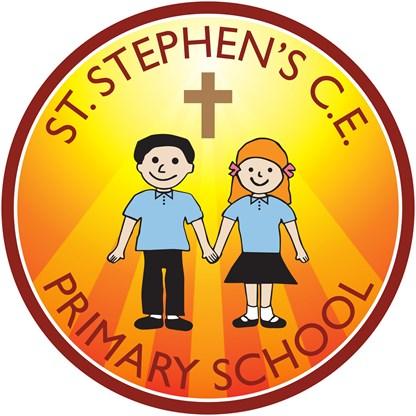
Christian values and spirituality are at the heart of all aspects of school life. Our school’s

School Brochure
2023-2024
Headteacher
Alison Richardson BSc (Hons), NPQH
www.ststephenscofe.durham.sch.uk
Christian ethos reflects mutual care and concern – where faith, love, hope and truth flourish.
Contents
Page 3
Page 4
Page 5
Page 6
Page 7
Page 8
Page 9
Page 10
Pages 11-14
Contact Details
Bishop’s Preface
Headteacher’s Welcome
Our Vision / Our Governing Body
Mission Statement
Primary Admissions Criteria
We are proud to be a Church School
School Inclusion Statement
Keeping Children Safe in Education
Page 15 SEN
Page 16 Pupil Voice / Reporting to Parents
Page 17
Pages 18-20
Page 21
Page 22
Page 23
Page 24
Page 25
Page 26
The Curriculum
The Early Years Foundation Stage
Parental Involvement
Homework / School Policies / Website /Facebook
The School Day / Attendance & Punctuality
Extended Care
School meals / Health & Welfare
Pupil Behaviour
Page 27 Play Matters
Page 28 Community & Global Links
Page 29 Holiday dates
Page 30
General Information
Pages 31-32 Uniform
Page 33 School Performance Data
Page 34 Privacy Notice / Parking
Page 35
Our School Prayer
2
Contact Details
Headteacher:
Mrs. Alison Richardson
Deputy Headteacher: Mrs. Victoria Suddes
School Business Manager: Mrs. Deborah Wilson
Chair of Governors: Mrs. Jean Doloughan
Address:
St. Stephen’s C.E. Primary School Hall Lane, Willington, Crook Co. Durham. DL15 0QH
Telephone: 01388 746426
Email: ststephensce@durhamlearning.net
Website: www.ststephenscofe.durham.sch.uk
Teaching Staff
Teaching Assistants
Office Manager
Site Manager
Cleaner
Cook in Charge
Kitchen Assistants
Lunchtime Supervisory Assistants
Out of Hours Care Assistants
Mrs. J. Bulmer
Mrs. T. Greaves
Miss J. Binks
Mrs. M. Charlton
Miss K. Wilson
Mrs. S. Binks
Miss E. Cowley
Mrs. L. Edwards (SENCO)
Mrs. M. Breen
Mr. A. Musgrove
Mrs. P. Harrison (HLTA),
Mrs. S. Walker, Miss A. Clarke
Miss L. Moore, Mrs. P. Woloszyn,
Mrs. J. Walton , Miss T. Griffiths, Miss E. Hawkins, Miss R Slater, Miss A Dobson
Mrs. N. Lawson
Mrs. C. Bowes
Miss L. Herring
Mrs C. Underwood
Mrs. S. Sample
Mrs G. Minto
Mrs J. Milburn, Lisa Herring
Mrs G. Minto, Mrs D. Armstrong
3
Bishop’s Preface
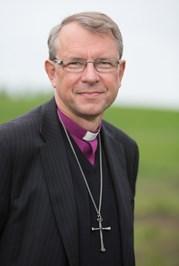
A message of welcome from the Bishop of Durham, Bishop Paul Butler
It has been my privilege over many years to visit schools in many different places. This has been across England but also in some of the very poorest countries in the world, like Rwanda, Burundi and Uganda. It does not matter where I see schools at work, I am always impressed by the dedication of teachers and the longing of parents to want the very best for their children. As a parent I know you want the very best for your child. The Church of England is engaged in schools because it too wants the very best for every child.
Every child matters because every child is special. Naturally they are special to you, their parent or carer, and to grandparents. They are also very special to the school. This is particularly true for us in church schools because of what we believe about the value God places on every child.
Jesus’ friends were arguing one day about who was the greatest in God’s kingdom. Jesus took a small child, stood him or her amongst the group and told all the adults that unless they became like this child they could never enter God’s kingdom. I often wonder just how very special that child felt that day. We want that sense of being loved, accepted and valued to be at the very heart of our schools, and of your child’s education.
Education matters because it provides building blocks for life now and into the future. We seek to offer the very best education we can in every school. This is not simply about the important matters of reading, writing, numbers and the like. It is also about the values by which we behave, and the kind of people we want to be. We believe our church schools offer great all round education for every child. I love being able to visit schools and meet children. They are always enthusiastic, welcoming and brilliant at asking tough questions. Their zeal for learning is inspiring.
So welcome to one of our wonderful church schools. I trust your child will find they grow and develop well throughout their time here.
Paul

4
Picture by Keith Blundy | Durham Diocese
Headteacher’s Welcome
On behalf of the staff, governors and pupils of St. Stephen’s CE Primary School, I would like to welcome you and your child to our school.
Primary education is a critical stage in any child’s development and at St. Stephen’s CE Primary School we place the child at the centre of our educational thinking, always catering for the individual needs of our pupils. This is the time which shapes each child for future life – allowing them to enjoy, explore and experience the joy of discovering on a daily basis. We aim to challenge and support our pupils to do their best academically and ensure that they have access to a wide range of other opportunities within the school such as music tuition, sporting activities and creative arts.
As a school we believe that in order to provide our pupils with the best all round education we can, there must be effective partnerships built with all members of the school community, especially with parents and carers. Working closely with parents/carers prepares the way for all pupils to achieve their full potential and to this end we invite you to sign a Home School Partnership Agreement which signals our joint commitment towards the education and welfare of your child.
There are many ways in which you can help and encourage your child as they begin full time schooling. Further information will be available as your child starts to attend our school through our website, regular newsletters and information evenings.
If you would like to take a more active role in school, we would be delighted to welcome you. We have parents who help regularly in school with all aspects of the curriculum e.g. reading, computer skills, art, maths, sport. Please ask at the office for further details.
This brochure is designed to answer many of the initial questions which parents have when looking at schools but should you have any further questions or concerns, please do not hesitate to contact your child’s class teacher, the school business manager or myself. We firmly believe in the importance of ongoing two-way communication.
And finally – welcome to our school – a school which is proud to be a Church School in the Diocese of Durham and which firmly believes in bringing out the best in each and every child.
Alison Richardson Headteacher

5
Our Vision for St. Stephen’s CE Primary
St. Stephen’s CE Primary School is at the heart of the village of Willington in County Durham. We are a Church of England (Controlled) Primary School and provide a high quality of education for all our children aged 3 to 11 years old, founded on a rich Christian ethos.

There are approximately 190 children on roll plus a 26 place nursery which offers both 15 hour and 30 hour entitlements and the option of purchasing additional hours. Our current building was formerly opened in March 1972 and consists of a separate Nursery and classrooms for Reception to Year 6. The school has an adjacent playground, large sports field and outdoor learning environments.
Our vision for St. Stephen’s Church of England Primary School is to provide a safe, happy and stimulating environment in which all members of the school community are encouraged to be 'the best that they can be' and be challenged to achieve their fullest potential.
We are committed to offering an inspiring curriculum which is relevant to the needs of our children and which will enable the knowledge, skills and values to be developed which are essential for children to lead fulfilling lives and make a positive contribution, as adults in the 21st century. This will be developed through excellent teaching founded on knowledge of the needs of each individual, and supported by a strong Christian ethos promoting values such as mutual respect and a strong sense of individual worth.
We are dedicated to building upon the current successes of our school and to maintaining and developing further the excellent relationships between staff, pupils, parents, governors, the church, the wider and the global community. We believe we can 'Work together, learn together and grow together' to offer the best possible education for our children, enabling them to grow into confident, independent and responsible members of the Willington community.
Our Governing Body
Parent governors are a core part of a school’s Board of Governors. The role is voluntary and will appeal to parents who want to make a positive impact on their child’s education and school life. The outcome is indirect, since the governor role has little interaction with the pupils or with daily school life, but is much more “behind the scenes”. As well as parent governors, a school’s Board of Governors consists of:
• Staff governors
• Local authority governors
• Foundation governors
• Partnership governors
• Co-opted governors
• Associate members
Volunteers need to be dedicated people who care about improving education, but they do not need prior board experience. It makes the role perfect for professionals looking to improve their business and leadership skills, give back to society and enhance children’s futures.
If you require further information on the roles and responsibilities of School Governors or you are interested in becoming one, contact the school office.
6
Our Mission Statement
'Let Your Light Shine'
(Matthew 5.v16)
Our school motto encompasses all that we are about as a school. ‘Let your light shine’
The motto incorporates three fundamental elements:
The light of the Gospel message of Jesus
The light of individual talents
The light of learning
We believe that “There is something…. potentially wonderful in everyone” (Archbishop Dr Rowan William) and our role as educators is to inspire our children to be the best that they can be so their light can shine to the world.
At St. Stephen’s Church of England Primary School we are proud to be a Church School with a distinct Christian character and ethos. We promote a love of learning within a safe and secure environment, in which every child matters as a precious gift from God. We believe every child is unique, different and special.
Christian values and spirituality are at the heart of all aspects of school life. Our school’s Christian ethos reflects mutual care and concern- where faith, love, hope and truth flourish. Our school is a place where children are able to establish and deepen their understanding of God through prayer and reflection in daily acts of Collective Worship and Religious Education.
We provide a creative and challenging curriculum in order to inspire and motivate our pupils. We want all our children to feel secure and happy, enabling them to reach their fullest potential. We believe that happy children learn well and we thrive on celebrating the achievements of all our pupils across all areas of learning.
We aim to create an environment where children develop the confidence to think for themselves; where pupil voice is at the heart of all decision making and where all children feel valued and respected. Our school ethos is built on mutual tolerance and respect for all human beings, regardless of beliefs culture or race. Charity and caring for those in need is fundamental to our work in school. We are all children of God so we aim to treat others as we would like to be treated ourselves.
We work in partnership with governors, families; the wider community and our local Parish Church to ensure everyone has a voice in achieving the best possible education for our children. Ultimately we are committed to excellence for all and through a process of continual reflection and evaluation we ensure that standards are continually raised and improved.

7
Primary Admissions
St. Stephen’s CE Primary School follows the Local Authority policy for admissions.

The present admission limit for our school is 30 per year group. We have one intake into Reception in September. If a child’s birthday falls between 1st September of the current year and the 31st August of the next year they will be admitted in the September of the current year.
In the Autumn Term, Durham County Council provide information about how parents can apply for school using their online service. Parents of all of our Nursery children will be notified and it is then up to parents to ensure that applications are made online or they must request a paper application form from Admissions which is to be returned directly to Durham County Council before the deadline in January. The school cannot be held responsible for late admissions or lost forms. Please note: Attendance at our Nursery does not guarantee your child a place at our school.
You can apply through one of the following methods:
Complete a form through Durham County Council’s on-line admission system. https://www.durham.gov.uk/article/2191/Primary-school-places
Request a form direct from School Admissions at:
School Admissions and Transport
Children and Adults Services
County Hall
Durham
County Durham
DH1 5UJ
Tel: 03000 265 896
You will receive confirmation of a place the following April and we will then provide induction details. It may not be possible to offer your child a place at your chosen school if that school receives more applications than it can take within its admission limit. Where this happens, places will be allocated according to the following criteria in order of priority:
Children in Public Care
Medical Reasons – Very exceptional medical factors directly related to school placement.
Sibling Links – Pupils who have a brother or sister already attending the preferred school or associated primary school on the same site and who is expected to be on roll at the school at the time of admission.
Distance – Pupils who live nearest to the preferred school. THIS WILL BE BASED ON THE PARENTS’ ADDRESS. The Authority will, however, consider the overall availability of school places in an area to ensure that no children have an unreasonable distance to walk. This may override proximity to the preferred school.
Other Reasons
8
We are proud to be a Church School
The school aims to serve its community by providing education of the highest quality within the context of Christian belief and practice. It encourages an understanding of the meaning and significance of faith and promotes Christian values through the experience it offers all its pupils.
As a Church of England School we are closely linked to St. Stephen’s Church. Clergy and church members support the school by leading worship, attending our regular ‘Open Worship’ services in school and being involved and helping with school projects and activities.

We are proud to be a Church School and pride ourselves on the positive relationships we have established with all our children. Developing our children’s spirituality and unique thought is embedded into all aspects of school life, collective worship, and discrete RE and PSHCE / SEAL sessions. Children are encouraged to celebrate their uniqueness and develop their own personal thoughts and feelings. Throughout all our work in school children are encouraged to share their own opinions about a range of issues.
CollectiveWorship

A daily act of Collective Worship is held in school. In line with our standing as a Church of England school these acts of worship are Christian based and we take great care to nurture the moral and spiritual development of our children. We also hold regular ‘Open Worship’ services in school where parents and members of the Willington community are invited to join us in school. Our KS2 children are now timetabled to lead Open Worships throughout the school year which is wonderful to see.
Each Friday we hold a very special Celebration Worship. During this time teachers identify two children from each class to receive the Achievement Award and Award in Recognition of Christian Values. These children are presented with a certificate.
Parents do have the right to withdraw their children from collective worship if they so wish. If you wish to withdraw your child, please inform the Headteacher and arrangements will be made for your child to work, under supervision, in a separate area during the times of collective worship.
However, we hope that since parents have chosen a Church of England School, they would wish for their child to take part in collective worship and to understand that should they withdraw, their child will still be taught within the Christian ethos of the school.
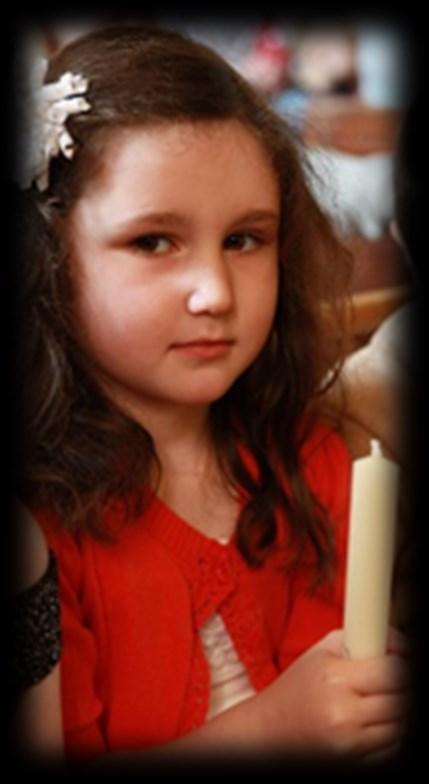
9
Inclusion & Equality
Our school is committed to equality both as an employer and a service-provider and as a Church School, underpinned by Christian values, we aim to create a school community which celebrates the uniqueness of all and respects the right to preserve individual identity.

Through our embedded Christian ethos we aim to ensure that everybody has the same chance to develop themselves to their full potential. Equal opportunities are entrenched in everything we do and should be addressed and embraced by everyone. The National Curriculum, RE, assemblies, acts of collective worship and family group sessions are used regularly to ensure that our children learn about equality and diversity. We enrich this programme by inviting visitors into school and by taking the children out to visit people and places to highlight matters to do with diversity.
As a result of the 2010 Equality Act, every public authority must:
Eliminate discrimination, harassment, victimisation and any other conduct which is prohibited by or under the Act;
Advance equality of opportunity between persons who share a relevant protected characteristic and persons who do not share it;
Foster good relations between persons who share a protected characteristic and persons who do not.
It is because of this that we publish our guiding principles for equality and diversity:
All learners are of equal value
Relevant differences are recognised
• We foster positive attitudes, relationships and a shared sense of belonging
• Staff recruitment, retention and development
• Current inequalities and barriers are addressed and reduced
• Policy development involves widespread consultation and involvement
• Society as a whole benefits
We also welcome our duty under the Education and Inspections Act 2006 to promote community cohesion. We welcome the emphasis in the Ofsted inspection framework on the importance of narrowing gaps in achievement which affect, amongst others:
pupils from certain cultural and ethnic backgrounds
pupils who belong to low-income households and pupils known to be eligible for free school meals
pupils who are disabled, or who are in the process of being diagnosed as disabled
pupils who have special educational needs
boys in certain subjects, and girls in certain other subjects.
Vulnerable Pupils, where home circumstances are known or believed to be unsettled in some way, causing some level of concern.
We set our Accessibility plan objectives for a 3 year period and review the progress annually.
Further information regarding Equality and Accessibility can be found on our school website. https://www.ststephenscofe.durham.sch.uk/key-information/equality-duty/
10
Safeguarding KeepingChildrenSafeinEducation
Children maximise their potential in an environment which is safe, secure and supportive of all their needs, including any needs they have for protection from abuse. St. Stephen’s CE Primary school is committed to promoting the welfare of all children by working in partnership with parents and carers, the Local Authority (LA) and multi-agency partners in early help and child protection, in accordance with locally agreed Local Safeguarding Children Board (LSCB) procedures and practices.
Our policy applies to members of the school community in its widest sense. Thus this includes children and young people, their parents/carers, school staff, governors, visitors, specialist staff, and the local and wider community where they interface with the school. Within its framework, the policy outlines entitlements and responsibilities in securing the protection of children who attend the school
To emphasise the caring ethos of our school, the staff and governors are committed to the following principles:-
The welfare and well-being of each child is of paramount importance.
Our policy works on the premise that abuse takes place in all communities and that school staff are particularly well-placed to identify and refer concerns and also to act to prevent children and young people from being abused.
We respect and value each child as an individual.
We are a listening school, and encourage an environment where children feel free to talk, knowing that they will be listened to.
The protection of children from abuse is a whole-school issue, and the responsibility therefore of the entire school community.
Our policy should be accessible in terms of understanding and availability. Regular training ensures all adults in school are aware of indicators of concern or abuse and the designated safeguarding leads that such information should be promptly passed on to
Our policy will be developed and kept up to date with information from our relevant partners in early help and child protection as well as national documentation issued by HM Government and The Department of Education.
We will use the school curriculum to resource our children to protect themselves from abuse, both as victims and as potential perpetrators.
The school runs in an open, transparent way.
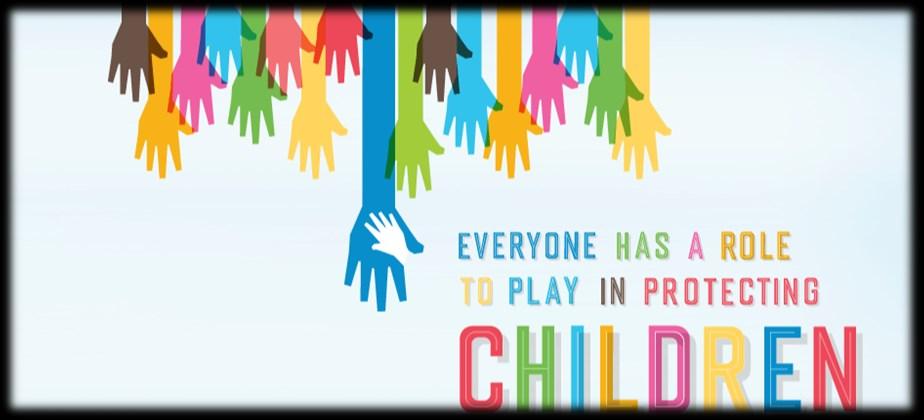
11
Safeguardingwithinourschoolandthroughoutschoollife

Everyone who comes into contact with children and their families has a role to play in safeguarding children. School staff are particularly important as they are in a position to identify concerns early and provide help for children, to prevent concerns from escalating. Schools and their staff form part of the wider safeguarding system for children working with social care, the police and health services both to promote the welfare of children and protect them from harm.
Safeguarding children permeates all aspects of our work as a school and underpins every decision we make on a day to day basis. Safeguarding takes many forms including the recruitment of new staff, risk assessments for trips, health care plans for children, site security, regular child protection training, e-safety lessons for children and staff with accredited first aid and medications training. Designated safeguarding leads take responsibility for child protection, including support for staff, developing policies and training and information sharing with other agencies.
Our safeguarding policies cover all areas of school life and include:
staff and visitors – ensuring they are vetted, informed and trained
children’s behaviour – promoting safer and happier lifestyles
parents and carers – promoting links and supporting families
premises – keeping them safe, pleasant and fit for purpose
curriculum – providing positive, life affirming learning experiences
outside school – ensuring safer activities and environments outside school.
We aim to create and maintain a caring ethos where all children and adults feel safe, secure and valued. If children feel happy and enjoy school this will encourage good attendance and then create conditions in which they can do their best in every area of school life. Our school operates as a listening school where children are able to approach adults with concerns. These will be taken seriously and relevant Local Safeguarding Children Board (LSCB) procedures followed without delay if there is a risk/likelihood of, or actual significant harm
Workingwithparentsandcarers
Our school believes in effective communication with parents and carers. We welcome parent/carer views and concerns about the welfare of their children and use this feedback to regularly review our practices. Parental views are obtained in the following ways: questionnaires, parent’s evenings, family learning opportunities, speaking to parents.
We keep parents informed about important and topical issues, including child protection elements of safeguarding, in the following ways: newsletters, texting service, letters home, website, training/ information sessions e.g. e-safety, bullying etc.)
12
SafeguardingandChildProtectiontrainingforallstaff/adultsworkinginschool
Our school complies with the advice laid down in ‘Working Together to Safeguard Children’ 2015 and ‘Keeping children safe in education’ 2022 to undertake regular training for all staff. A record of those trained may be found in the Single Central Record. Individuals have a certificate to verify their attendance.
Training for the designated safeguarding lead and other designated teachers in school is undertaken every 2 years. The designated safeguarding lead persons are:
Alison Richardson - Headteacher
Victoria Suddes - Deputy Headteacher
Judith Bulmer - Teacher
Linda Edwards SENDCO
The Nominated Governor with responsibility for Child Protection is Mrs Doreen Booth
We follow strict procedures to ensure that everyone who works with our children is vetted, keeping our children as safe as possible. Ongoing checks and ‘whistle-blowing’ are in line with current policy. The Head Teacher, other staff responsible for recruitment and the Chair of Governors have attended ‘Safer Recruitment Training’.
SafeguardingandChildProtectionPolicy
Our policy applies to all staff, governors and volunteers working in school. There are six main elements to the policy:
1) Establishing a safe environment in which children can learn and develop
2) Ensuring we practice safe recruitment in checking the suitability of staff and volunteers to work with children
3) Training and supporting staff to equip them to appropriately recognise, respond to and support
4) children who are vulnerable and may be in need of safeguarding
5) Raising awareness of child protection issues and equipping children with the skills needed to keep them safe
6) Developing and implementing procedures for identifying and reporting cases, or suspected cases, of abuse
7) Supporting pupils who have been abused in accordance with his/her agreed child protection plan
InformationSharing
We have an obligation to obtain necessary information from parents/carers in advance of a child being admitted to school, including:
emergency contact numbers;
the child’s special dietary requirements, preferences or food allergies the child may have;
the child’s special health requirements;
Information about who has legal contact with the child; and who has parental responsibility for the child;
Written permission is requested, at the time of the child’s admission to the provision, to the seeking of any necessary emergency medical advice or treatment in the future.

13

Staff at our school are aware of the need to share information appropriately. Our school takes care to ensure that information about a child is only given to the appropriate external people or agencies. All staff within school will be aware of the confidential nature of personal information about a child and the need for maintaining confidentiality. They will seek advice about parental responsibility issues if unsure.
LinkswithExternalAgencies
Because our first concern must be the well-being of your child, there may be occasions when we have to consult with other agencies before we contact you. The procedures we have to follow have been laid down in accordance with the Local Authority and Child Protection Procedures. We are fortunate to be supported by a range of external agencies which can be called upon to support the work we do in school. These include Schools Nurse, Health practitioners, Educational Psychology, Child & Adolescent Mental Health Services, Behaviour Support, Education Welfare, Social Services and Specialists in supporting Special Educational Needs.
Universalservicesandspecialistsupportstaff
The following professionals are also available to support individual children in school:
school nurse team
Parent Support Adviser: Julie Bray
Attendance Improvement Team
Educational Psychologist
Child and Adolescent Mental Health Service (CAMHS)
Learning mentors
Reportingconcernsorcomplaints
Further to the above procedures, we have in place a Complaints Policy. This enables children, staff and carers to report anything they feel is of concern.
School Complaints Policy
ReviewofPolicyandPractice
In order to ensure the best practice is maintained, our policies are reviewed regularly to incorporate the latest statutory guidance. If you would like further information on safeguarding, please contact the school or view our policies section in our website.
14
One
Ferryhill Broom Road, Ferryhill, Co. Durham. DL17 8AN Tel: 03000 261 113
Point Hub
The
Special Educational Needs (SEN)
At St Stephen’s CE Primary School we recognise that all pupils are entitled to a quality of provision that will enable them to achieve their potential. We believe in positive intervention, removing barriers to learning, raising expectations and levels of achievement and working in partnership with other agencies in order to provide a positive educational experience for all our pupils including those with a special educational need or disability. Our school recognises there are particular groups of pupils whose circumstances require additional consideration by those who work with them to support their SEN.
At St Stephen’s CE Primary School we have appointed a Designated Teacher for Looked after Children who works closely with the SENDCO to ensure all teachers in school understand the implications for those children who are looked after and have SEN. We ensure that all pupils, regardless of their specific needs make the best possible progress.
There are now four broad areas of SEND, these are:
CommunicationandInteraction
This area of need includes children with Autism Spectrum Condition and those with Speech, Language and Communication Needs.
CognitionandLearning
This includes children with Specific Learning Difficulties, Moderate Learning Difficulties, Severe Learning Difficulties and Profound and Multiple Learning Difficulties.
Social,EmotionalandMentalHealthDifficulties
This includes any pupils who have an emotional, social or mental health need that is impacting on their ability to learn.
Sensoryand/orPhysicalDifficulties
This area includes children with hearing impairment, visual impairment, multi-sensory impairment and physical difficulties.
At St Stephen’s CE Primary School, we are committed to the equal inclusion of all pupils in all areas of school life. We recognise the diverse and individual needs of all of our pupils and take into account the additional support required by those children with Special Educational Needs and Disabilities (SEND).
The information that must be included in our SEND Information Report can be found on our school website.
Copies of the school’s policies addressing SEND and dealing with the various issues affecting pupils with disabilities are published on our school website or may be obtained from the school office. We will also be happy to provide a copy of the School Accessibility Plan, Race Equality Scheme, Disability Equality Scheme or Gender Equality Scheme which are reviewed regularly as part of our ongoing commitment for inclusion.

15
Pupil Voice
At St. Stephen’s CE Primary School we feel that all our pupils should have a voice in the growth and development of our school. Children are routinely involved in small group pupil voice sessions sharing their thoughts and opinions on a range of school aspects such as bullying, Worship and Curriculum.

In Spring Term all pupils take part in a questionnaire which considers all aspects of school life. The results from the questionnaires are used by the management team to inform future planning. Children are also encouraged to use our school suggestion box if they have any ideas or suggestions they would like to share.
The school has a very active and effective School Pupil Council, which is voted into office annually and meet regularly. Class councils provide a deliberate forum for retrieving children’s opinions, ideas and concerns about school life. School council representatives in each class record any issues from class councils and feed them back to whole school council meetings. Regular meetings are also held with the Headteacher to discuss the issues raised in the School Pupil Council meetings. The school council have a key role in sharing information about our school to outside agencies and stakeholders and school Governors are invited to attend school council meetings. We are really proud of achieving the Investors in Children Award which recognises how our children are valued and involved in decision making within school.
Y6 Buddies support younger children during break time sessions and feedback any issues to relevant members of staff. Pupils are keen to be involved in charity efforts and regularly raise funds for Children in Need, Christian Aid and presents for Operation Christmas Child. They have also raised funding for a ‘Quiet Shelter’ a ‘Buddy Bus Stop’ on the school yard and resources for our Outdoor Play and Learning project (OPAL).
Pupils are regularly involved in working group meetings such as School Travel Planning, evaluating Collective Worship, reviewing Race Equality Schemes and Action Planning and many others.
Reporting to Parents
School’s are legally obliged to provide one school report per school year and an opportunity to discuss this report in person.
At. St. Stephen’s CE Primary School, we provide Pupil Progress Summary Reports at the end of Autumn and Spring Terms. These reports inform parents of what learning has taken place throughout the term, their child’s progress step and their targets for the next term. In Summer term a more detailed report is provided which recognises the individual talents of the child.
Parents meetings take place termly, offering three opportunities to discuss learning. Parents are always welcome to contact us at any point during the school year if they have any concerns regarding their child’s learning.
16
The Curriculum
A child’s primary education spans across three stages within school:
EYFS - ages 3 to 5 - Nursery & Reception (Early Years Foundation Stage)
Key Stage 1 - ages 5 to 7 - Years 1 and 2
Key Stage 2 - ages 7 to 11 - Years 3, 4, 5 and 6
All classes use a mixture of teaching styles and techniques during the week in a variety of groupings – whole class, ability groups, mixed ability groups, paired working.
Children are taught daily lessons of Reading, Writing and Mathematics where the level of work is tailored to individual ability. A broad and balanced curriculum is planned and taught in a happy and stimulating environment in accordance with the National Curriculum requirements.
Independent and collaborative skills are encouraged in all year groups and Information and Communications Technology (ICT) is readily used and embedded across the whole curriculum.
All curriculum policies are available for parents to view (please ask at the office for details or see the school website). The school combines a variety of published national schemes together with its own Creative Curriculum to provide a broad and balanced curriculum for quality learning and teaching.
There are four Core subjects in the National Curriculum which are:
English/Literacy
Mathematics/Numeracy
Science
Information and Communications Technology (ICT)
These four Core subjects are integrated into the curriculum along with the Foundation subjects of:
Art and Design
Design and Technology
Geography
History
Music
Personal, Social and Health Education and Citizenship
Physical Education
French
We also teach Religious Education as part of our statutory duties as an Anglican Church School.
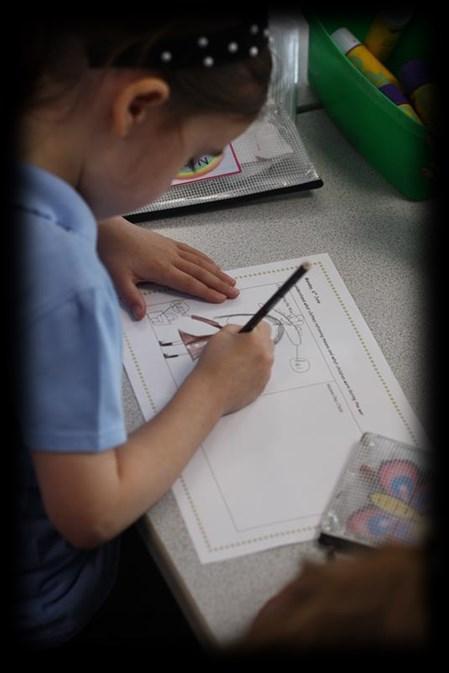
17
EYFS - Areas of Learning
Every child deserves the best possible start in life and the support that enables them to fulfil their potential. Children develop quickly in the early years and a child’s experiences between birth and age five have a major impact on their future life chances. A secure, safe and happy childhood is important in its own right. Good parenting and high quality early learning together provide the foundation children need to make the most of their abilities and talents as they grow up. Four guiding principles should shape practice in early years settings. These are:
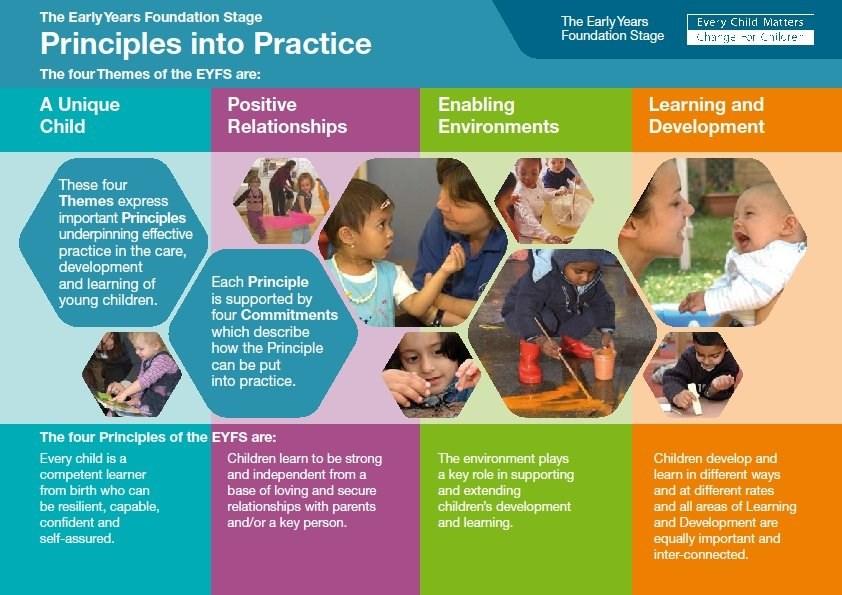
The areas of learning and development in the Early Years
There are seven areas of learning and development that must shape educational programmes in early years. All areas of learning and development are important and inter-connected. Three areas are particularly important for building a foundation for igniting children’s curiosity and enthusiasm for learning, forming relationships and thriving. These are the prime areas: communication and language, physical development and personal, social and emotional development. Children are also nurtured in four specific areas, through which the three prime areas are strengthened and applied: literacy, mathematics, understanding the world and expressive arts and design.
18
PRIME AREAS
Communication and Language

The development of children’s spoken language underpins all seven areas of learning and development. Children’s back-and-forth interactions from an early age form the foundations for language and cognitive development. The number and quality of the conversations they have with adults and peers throughout the day in a language-rich environment is crucial. By commenting on what children are interested in or doing, and echoing back what they say with new vocabulary added, practitioners will build children's language effectively. Reading frequently to children, and engaging them actively in stories, non-fiction, rhymes and poems, and then providing them with extensive opportunities to use and embed new words in a range of contexts, will give children the opportunity to thrive. Through conversation, story-telling and role play, where children share their ideas with support and modelling from their teacher, and sensitive questioning that invites them to elaborate, children become comfortable using a rich range of vocabulary and language structures.
Personal, Social and Emotional Development
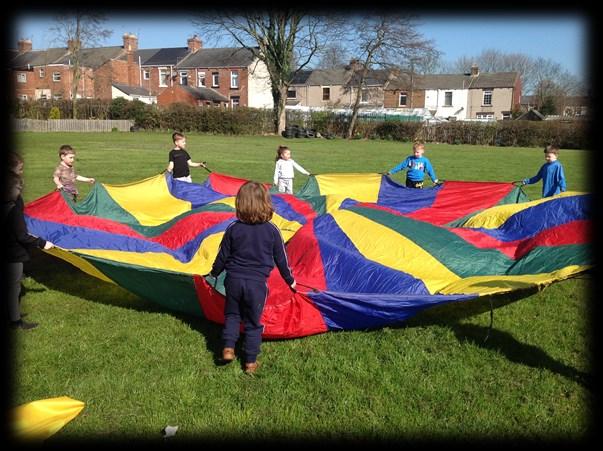
Children’s personal, social and emotional development (PSED) is crucial for children to lead healthy and happy lives, and is fundamental to their cognitive development. Underpinning their personal development are the important attachments that shape their social world. Strong, warm and supportive 9 relationships with adults enable children to learn how to understand their own feelings and those of others. Children should be supported to manage emotions, develop a positive sense of self, set themselves simple goals, have confidence in their own abilities, to persist and wait for what they want and direct attention as necessary. Through adult modelling and guidance, they will learn how to look after their bodies, including healthy eating, and manage personal needs independently. Through supported interaction with other children, they learn how to make good friendships, co-operate and resolve conflicts peaceably. These attributes will provide a secure platform from which children can achieve at school and in later life.
Physical Development
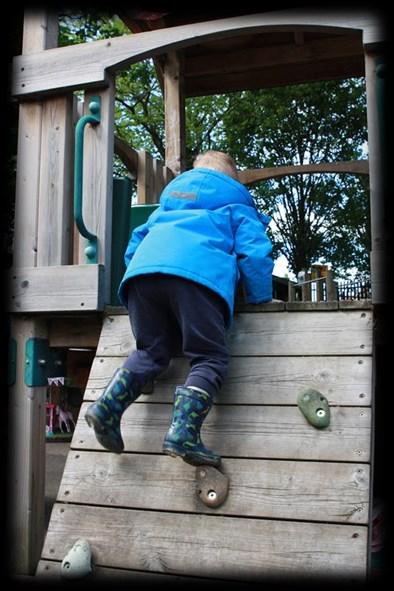
Physical activity is vital in children’s all-round development, enabling them to pursue happy, healthy and active lives. Gross and fine motor experiences develop incrementally throughout early childhood, starting with sensory explorations and the development of a child’s strength, co-ordination and positional awareness through tummy time, crawling and play movement with both objects and adults. By creating games and providing opportunities for play both indoors and outdoors, adults can support children to develop their core strength, stability, balance, spatial awareness, co-ordination and agility. Gross motor skills provide the foundation for developing healthy bodies and social and emotional well-being. Fine motor control and precision helps with hand-eye co-ordination, which is later linked to early literacy. Repeated and varied opportunities to explore and play with small world activities, puzzles, arts and crafts and the practice of using small tools, with feedback and support from adults, allow children to develop proficiency, control and confidence.
19
SPECIFIC AREAS
Literacy
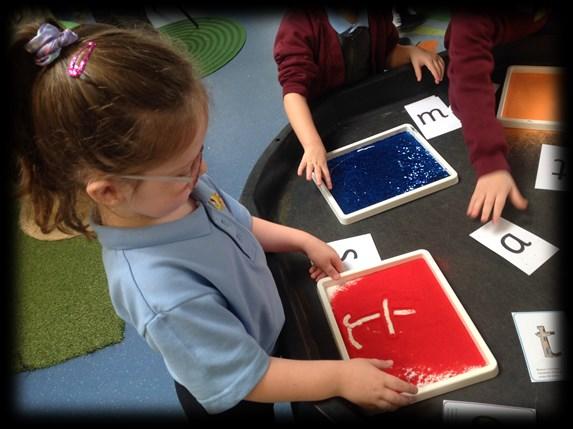
It is crucial for children to develop a life-long love of reading. Reading consists of two dimensions: language comprehension and word reading. Language comprehension (necessary for both reading and writing) starts from birth. It only develops when adults talk with children about the world around them and the books (stories and non-fiction) they read with them, and enjoy rhymes, poems and songs together. Skilled word reading, taught later, involves both the speedy working out of the pronunciation of unfamiliar printed words (decoding) and the speedy recognition of familiar printed words. Writing involves transcription (spelling and handwriting) and composition (articulating ideas and structuring them in speech, before writing). 7 The Chief Medical Officer has published guidance on physical activity, which is available at: https://www.gov.uk/government/publications/physical-activity-guidelines-ukchief-medical-officers-report.
Mathematics
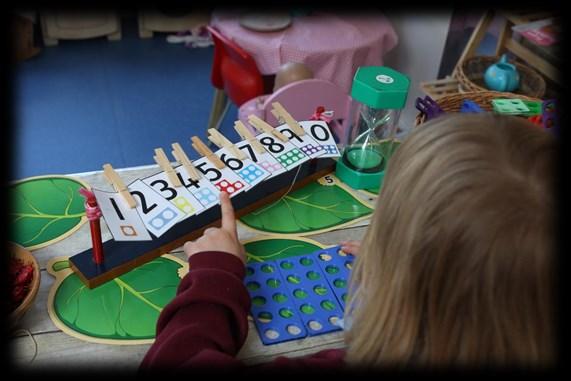
Developing a strong grounding in number is essential so that all children develop the necessary building blocks to excel mathematically. Children should be able to count confidently, develop a deep understanding of the numbers to 10, the relationships between them and the patterns within those numbers. By providing frequent and varied opportunities to build and apply this understanding - such as using manipulatives, including small pebbles and tens frames for organising counting - children will develop a secure base of knowledge and vocabulary from which mastery of mathematics is built. In addition, it is important that the curriculum includes rich opportunities for children to develop their spatial reasoning skills across all areas of mathematics including shape, space and measures. It is important that children develop positive attitudes and interests in mathematics, look for patterns and relationships, spot connections, ‘have a go’, talk to adults and peers about what they notice and not be afraid to make mistakes.
Understanding the World
Understanding the world involves guiding children to make sense of their physical world and their community. The frequency and range of children’s personal experiences increases their knowledge and sense of the world around them – from visiting parks, libraries and museums to meeting important members of society such as police officers, nurses and firefighters. In addition, listening to a broad selection of stories, non-fiction, rhymes and poems will foster their understanding of our culturally, socially, technologically and ecologically diverse world. As well as building important knowledge, this extends their familiarity with words that support understanding across domains. Enriching and widening children’s vocabulary will support later reading comprehension.
Expressive Arts and Design
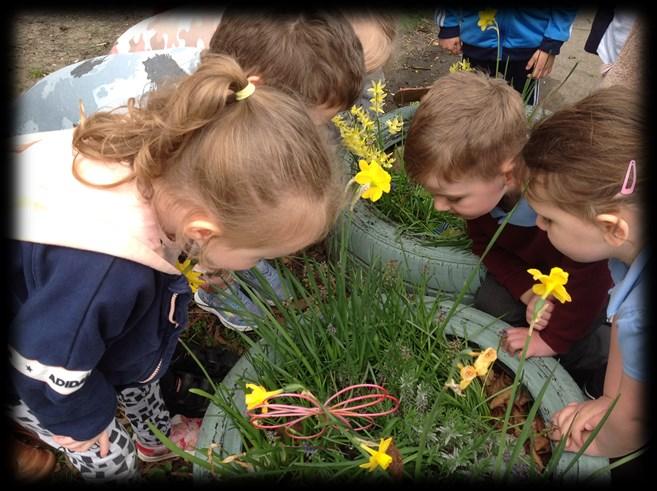
The development of children’s artistic and cultural awareness supports their imagination and creativity. It is important that children have regular opportunities to engage with the arts, enabling them to explore and play with a wide range of media and materials. The quality and variety of what children see, hear and participate in is crucial for developing their understanding, self-expression, vocabulary and ability to communicate through the arts. The frequency, repetition and depth of their experiences are fundamental to their progress in interpreting and appreciating what they hear, respond to and observe.

20
Parental Involvement
Our policy has always been to involve parents and carers as much as possible in the education of their children and in school life. We operate an ‘open door’ policy which welcomes our parents into school at all times to share concerns, queries or problems. Parents can also arrange informal meetings either before or after school with specific class teachers to discuss particular issues.
A parent’s questionnaire is routinely sent out in the Spring/Summer Term, addressing all areas of school life. The questionnaire requests parent’s opinions on a whole range of topics, and encourages parents to identify strengths and next steps for our school. Results from the parent’s questionnaires are used by the management team to inform future strategic planning.
At the beginning of each term all staff send out class newsletters containing relevant information about routines for that term, topics to be covered, and most importantly ways that you can help your child progress further. At the end of each term you will receive a termly report which provides information about curriculum coverage, attendance, social and emotional development, attainment in writing, reading and mathematics and the future targets. Parents are invited into school each term to discuss the progress, achievement and personal development of their child.
Yearly induction meetings for parents are arranged for Nursery and Reception children before they begin each setting. An extensive transition programme is also planned for both nursery and reception children, including, family visits, informal meetings with parents and taster sessions. Parents are valued as partners in education and communication between parents and staff is encouraged and highly valued.
Parents are welcomed into school for Celebration days termly. Parents have the opportunity to work alongside their child in lessons, view their work, chat to staff and enjoy taking part in an afternoon at school.
The Home School Partnership Agreement supports the need for information to be shared between home and school. Should you ever feel that information from home needs sharing with school then we would urge you to contact the school as soon as possible. All information needs to be shared so that we can support and help your child at all times.
We welcome parents to come and visit the school and staff. Throughout the year there will be many informal opportunities for you to come into school. Please remember if you have any concerns at all regarding your child our door is always open.
We have a small ‘army’ of volunteers who come and work with teachers in the classroom. You will be very welcome if you wish to contribute any expertise or help in any way. This offer also applies to grandparents/aunties/ uncles, etc! All volunteers must consent to an enhanced Disclosure and Barring Service check being carried out prior to starting.
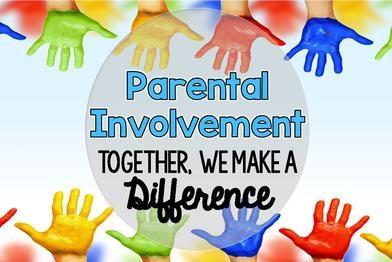
21
Homework
All children are encouraged to read on a daily basis at home. Reading books are provided together with a reading record in which parents and teachers can record progress.
Children are encouraged to practise tables and spellings at home and receive weekly homework tasks which provides another opportunity for parents to assist in their child's progress. The children may also be asked, on occasion, to collect information and or materials for other work.

Homework is an important part of a child's education, and can add much to a child's development. Homework plays a positive role in raising a child's level of attainment. We see homework as an important example of cooperation between teachers and parents/carers. One of the aims of our teaching is for children to develop as independent learners, and we believe that doing homework is one of the main ways in which children can acquire the skill of independent learning.
However, we also acknowledge the important role of play and free time in a child's growth and development. We also recognise that children work very hard during their time in school and that everybody needs to relax at the end of a busy day. It is not our intention to overburden children with additional work. We recognise too that homework takes place during a pupil’s own time and may conflict with other activities. While homework is important, it should not prevent children from taking part in the activities of various out of school clubs and of other organisations that play an important part in the lives of our pupils. We are well aware that children spend more time at home than at school, and we believe that they develop their interests and skills to the full only when parents/carers encourage them to make maximum use of the opportunities available outside school.
School Policies
Our school has a wide variety of policies, aimed towards providing the best possible care for anyone who visits or attends our school. All policy documents are available to download from our school website: https://www.ststephenscofe.durham.sch.uk/key-information/school-policies/ If you would like a paper copy (or any other format) of any of our policy documents which are please speak to the school office, who will provide them to you free of charge.
Website & Facebook
For further information about our school and all the latest news and events, please visit our school website and Facebook pages.
Website:
https://www.ststephenscofe.durham.sch.uk/ School Facebook
https://www.facebook.com/ststephensce
Early Years Facebook
https://www.facebook.com/St-Stephens-CE-Primary-Early-Years-109686607104843
22
The School Day
Nursery: flexible entitlement - 8.45am– 2.45pm
School; Morning session - 8.45am – 12.00pm for KS1
Lunch break
- 8.45am – 12.30pm for KS2
- 12.00pm - 1.00pm for KS1
- 12.30pm - 1.30pm for KS2
End of School Day - 3.15pm

There is a morning break for all classes, which lasts for 15 minutes and an afternoon break for Classes 1, 2 & 3. which lasts for 10 minutes. Early Years access free play as part of their continuous provision.
Pupils can enter school from 8.35am and registration time is at 8.45am. Members of staff will welcome children into school at the main gates and they will then proceed to their class. Pupil are encouraged to arrive in good time to allow them to get to their classroom before 8.45am.
At 8.45am the pupil entry gates will be locked and any late pupils must then request access via the security gate. A member of staff will record the pupil’s time of arrival before they then proceed to class. It is vitally important for all children to be on time, as missing the first few minutes of any lesson can be disruptive and unsettling, both for children and for the rest of the class.
Attendance & Punctuality
St. Stephen’s CE Primary School seeks to ensure that all of its pupils receive an education which maximises opportunities for each pupil to realise his/her true potential. The school will strive to provide a welcoming, caring environment, whereby each member of the school community feels wanted and secure.
We believe that all students benefit from the education we provide, and therefore from regular attendance. Regular school attendance plays a vital role in children’s wellbeing and their education, ensuring that their current learning needs are being met but also building their future ability to learn.
Parent’s have a legal duty to ensure their children attend their registered school regularly and on time. As a school we will work with pupils and their families to support parents to meet these legal duties and to ensure children can benefit from attending school regularly.
For full details of our attendance policies and procedures, please view our Attendance Policy on our website or a copy can be requested from the school office.
https://www.ststephenscofe.durham.sch.uk/wp-content/uploads/sites/158/2021/10/St-Stephens-CEAttendance-Policy-21-22.pdf
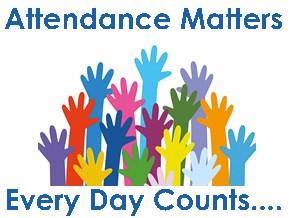
23
Extended Care
St. Stephen’s CE Primary Wraparound Care is open to children from Reception to Year 6 and offers breakfast club from 7.45am to 8.45am and afterschool childcare from 3.15pm to 5.00pm term time only.
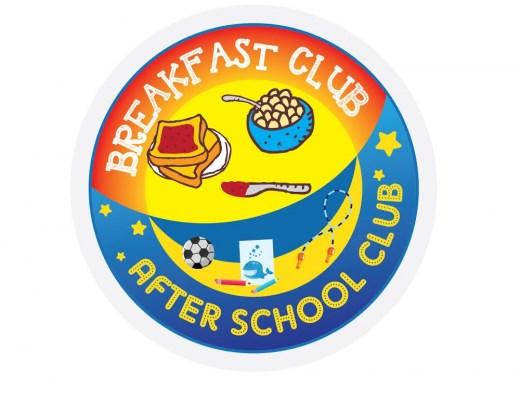
All after school care sessions must be booked via the Arbor portal no later than 12.00pm on the day that childcare is required to ensure availability. Payment must be made at the time of booking.
Breakfast club sessions do not need to be booked in advance. Children can just turn up on the day and the cost will be charged to your child’s account in Arbor which can then be paid online. NB: We no longer accept cash payments
Charges
Breakfast Club: 7.45am to 8.45am - £2.50 or 8.00am to 8.45am - £2.00
A choice of cereals, toast, pastries and drinks
Children must arrive at breakfast club no later than 8.15am in order for us to have time to feed them before school starts.
After School Care: 3.15pm to 5.00pm - £5.00
Children can bring a light snack.
Activities
Our pupils, with their many gifts and talents, enjoy a wide range of activities within ‘Wraparound’ to allow all gifts and talents to be nurtured. We hope that many of your will take advantage of this exciting opportunity for high quality childcare at an affordable cost. Please contact the school office for further details and how to book and pay.
Please note that:
We require at least 24 hours notice for any cancellations for after school care bookings otherwise charges will still apply.
It is important that children are collected by 5.00pm as additional charges will apply for late collection. The charge for this will be £5.00 for every 15 minutes.
Extra-Curricular Activities
We offer a range of extra-curricular activities for children from Year 1 to Year 6, which usually run from 3.15pm to 4.15pm including Singing, Fun in faith, Chess, Cookery, Forest Schools, Crafts, Football, Netball, Rugby, Gymnastics and a variety of other sports, in which we hope your child will participate. They offer your children an extension of school life and build upon the positive ethos of our school.
24
School Meals
We are committed to working alongside our catering contractor, Chartwells, to provide high quality nutritious meals for all our pupils. School Meals for all infant children are currently free, all other meals are priced at £2.50 per day. Payment should be made in advance each Monday and must be paid via our online payment system ‘Arbor’ as we are no longer taking any cash payments.
Free School Meals
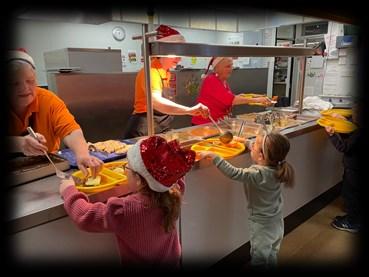
All schools receive additional funding known as pupil premium for pupils whose families receive certain benefits. The latest free school meals eligibility criteria can be found on our school website: https://www.ststephenscofe.durham.sch.uk/parents/school-office/school-meals/ If you think you qualify for Free School Meals please contact the school office for an application form.
Packed Lunches
Children can opt to bring a healthy packed lunch to school in line with our packed lunch policy which can be viewed on our website: https://www.ststephenscofe.durham.sch.uk/key-information/school-policies/ Breaktime Snacks
There is a government funded fruit scheme which entitles all Key Stage 1 children to free fruit everyday. Key Stage 2 children may bring their own fruit, but no other snacks are allowed.
Health & Welfare
Supporting pupils with medical conditions
In line with DCC guidance, we have adopted the latest policy for supporting pupils at school with medical conditions. A central requirement of the policy is for an individual healthcare plan (IHP) to be prepared, setting out what support each pupil needs and how this will be provided. IHP’s are developed in partnership between the school, parents, pupils, and the relevant healthcare professional who can advise on your child’s case. The aim is to ensure that we know how to support your child effectively and to provide clarity about what needs to be done, when and by whom. Although IHP’s are likely to be helpful in the majority of cases, it is possible that not all children will require one. We will need to make judgements about how your child’s medical condition impacts on their ability to participate fully in school life, and the level of detail within plans will depend on the complexity of their condition and the degree of support needed.
Administering Medication
If your child has had medicine prescribed to them, and this needs to be administered at school, we must have signed documentation for this. Medication permission forms are available from the school office. (All medicine must be prescribed by a doctor and have the child’s name and dosage instructions on it).
The School Health Service

We have an extremely positive relationship with our school nurse who regularly visits school supporting a wide range of curriculum topics. Throughout your child’s time at St. Stephen’s CE Primary, regular checks of hearing, eye-sight, height and weight will take place at selected stages. Parents will be clearly notified of any medical checks taking place with follow up information sent if appropriate.
Emergencies
We must have an emergency telephone number in case of accidents, etc’.
25
Pupil Behaviour
The class teacher is concerned not only for the educational progress but also for the personal, emotional and social development of your child. Our ethos is firmly based on a Christian foundation of forgiveness and understanding. We strive at all times to encourage our children to reflect on their behaviour, own up to their mistakes and seek forgiveness through writing sorry cards and letters. We do try to combine a sympathetic approach but sometimes problems do happen and we involve parents at an early stage rather than leave it until later. We do hope that you will too. Sometimes things happen that can cause problems at home and unfortunately it can cause problems at school so please let us know. We recognise that good behaviour and effective work habits play an essential part in preparing pupils for life. As a church school our policy is founded upon Christian principles which develop pupil’s awareness of the intrinsic values of others. By implementing Assertive Discipline in school, we wish to approach discipline positively, consistently and fairly. Through this we aim to provide a safe and happy school to which we are all proud to belong.
Expected Standards of Behaviour
At all times children are expected to:
Always listen and do as you are asked by adults in our school.
Keep hands and feet to yourself.
Be kind to others and have fun safely.
Speak politely and considerately to all adults and children.
Always tell the truth.

Each class is involved in devising their own class expectations at the start of each year
Praise and Rewards
Praise (verbal and written) – This may also be communicated to the child’s parents to reinforce approval.
Certificates and stickers
An Achievement certificate and Christian Values award is presented to children on a weekly basis as recognition of both academic and personal achievement in all aspects of school life.
Team points and Merit stars
Acknowledgement by Other Members of Staff – Praise is instantly given in front of peers, reinforcing positive aspects and achievement.
Consequences
Consequences of choosing not to behave appropriately;
A spoken warning by staff.
A second spoken warning reminding the children of the consequence of their behaviour
Time out away from their group.
A sorry card which shows understanding of the wrong choices made.
Being seen by the head teacher.
A letter or meeting with parents.
Possible exclusion.
How can parents help?
By understanding and supporting our aims to promote good behaviour through our implementation of assertive discipline.
By praising children when they receive rewards.
By co-operating fully and communicating with the school whenever support is needed to encourage good behaviour.
26
Play matters
At St. Stephen’s C.E. Primary School, play matters! We are continually exploring ways to improve our play offer for all of our children.
Play means doing something for fun, rather than for practical reasons. The beauty of this definition is that there’s no one way to play. Play doesn’t mean just building with blocks or playing with cars. Play is versatile and can be different things to different people.
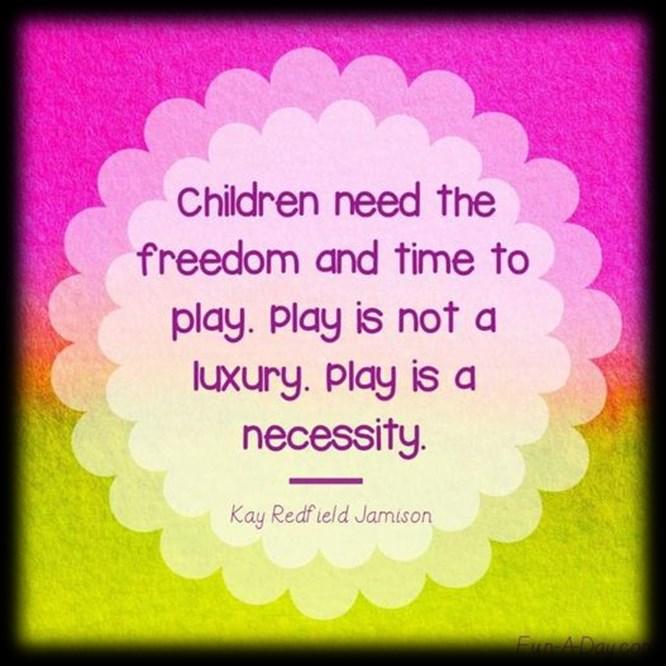
The benefits of allowing children to play are limitless: each different play type offers unique cognitive and physical benefits to a child’s development and wellbeing. Free play, in which children generate their own games, without a predetermined set of rules or goals is especially important. The social advantages of play are numerous. Engaging in group play develops a child’s team-building skills, communication skills, problem-solving and negotiation skills.
In school, we are looking to recognise our excellent ‘players’. Every month, our super ‘players’ will be presented with a ‘Players’ of the month’ award for exceptional collaborative and imaginative play. Play really does matter. As Albert Einstein once said, “Play is the highest form of research!”
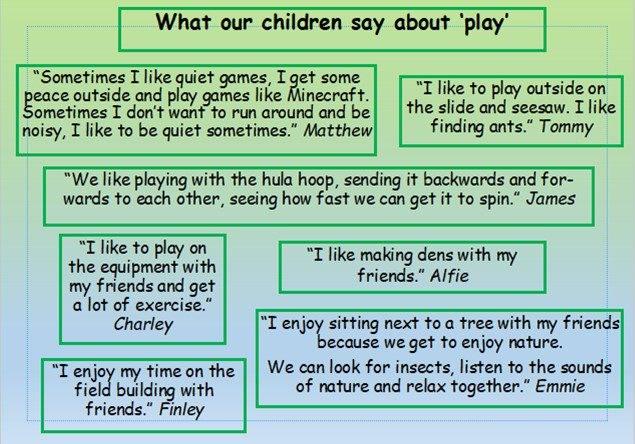
27
Community Links
Our school contributes well to the community cohesion within Willington through;
Our strong and continually strengthening link with the local Parish Church of St Stephens. The children visit the Church within curriculum time, take part in and lead services within the Church on special occasions. Children’s work is also displayed within the Church. Father David Spokes also leads Collective Worship within school.
One of our whole school creative topics was “Why is Willington wonderful?”. Children went out and about in Willington exploring and investigated what inspired and interested them during the first week of the topic. This local topic encouraged and developed links with the community of Willington, making the community more visible in school and the children more visible in the community. Staff and children have worked alongside Olive Linge to gain a secure understanding of the history of Willington.
The choir sing in church at Christmas and for Mother’s Day and annually visit our local care homes to sing to the residents.
At harvest time the children donate fruits and vegetables which are made into hampers by our parents and delivered by our Year 6 children to our neighbouring elderly residents.
Links with the neighbouring secondary school are strong and our children regularly attend both after school and in school events, particularly in relation to sport.
Global Links
At St. Stephen’s CE Primary School we are extremely passionate and very good at contributing to the cohesiveness of the wider community, both in Europe and the wider world. The teaching of Global dimensions is integrated throughout our curriculum and identified in planning. Children learn that we do not live in an isolated community but they are part of a wider global community.

Throughout the school year we explore different cultures and customs and we have enjoyed Polish, French, Italian and Spanish weeks exploring dance, music, art and food from these cultures. We have enjoyed hosting visitors from our link school in Zimbabwe.
All children explore culture and diversity and take part in workshop sessions exploring personal identity, belonging to different communities and faith and beliefs.
We have enjoyed visits from the Lions of Zululand, a traditional Zulu music and dance group from KwaZulu Natal in South Africa. Children took part in workshops exploring African dance, song, art and culture.
28
Holiday Dates 2023-24
Holiday
Summer 2023 (6 weeks) (inc. PD Days 04/09/23 & 05/09/23)
Autumn Half-Term 2023
week, 1 day)
PD day 27/10/23)
PD Day
Christmas 2023
PD Day 03/01/24)
Spring Half-Term 2024
Easter 2024
Bank Holiday School Closed on Monday, 6 May 2024
Summer Half-Term 2024
week)
bank holiday 27/05/22)
Summer 2023
29
Closing
Date
Purposes
Date
Re-open for Teaching
Friday,
Wed,
21 July 2023
6 September 2023
Thursday,
Monday,
(1
(inc
26 October 2023
6 November 2023
School Closed on Monday, 27 November 2023
(inc.
Tuesday, 19
Thursday,
(2 weeks)
December 2023
4 January 2024
(1
Friday, 16
Monday,
week)
February 2024
26 February 2024
(inc.
Thursday,
Monday
(2 weeks, 1 day)
Bank Holiday 29/03/24)
28 March 2024
15 April 2024
1
(inc.
Friday,
Monday,
(
24 May 2024
3 June 2024
Tuesday,
determined
23 July 2024 To be
General Information
Complaints Procedure
A concern or complaint can be made in person, in writing or by telephone. They may also be made by a third party acting on behalf of a complainant, as long as they have appropriate consent to do so.
Concerns should be raised with either the class teacher or Headteacher.
If the issue remains unresolved, the next step is to make a formal complaint.
Complainants should not approach individual Governors to raise concerns or complaints. They have no power to act on an individual basis and it may also prevent them from considering
complaints at Stage 2 of the procedure.
Complaints against school staff (except the Headteacher) should be made in the first instance, to the Headteacher via the school office. Please mark them as Private and Confidential.
Complaints that involve or are about the Headteacher should be addressed to the Chair of
Governors, either via School and Governor Support Service, Children and Young People’s Services, County Hall, Durham, DH1 5UJ, telephone 03000 262921
Complaints about the Chair of Governors, any individual Governor or the whole Governing Body should be addressed to Advice and Clerking Lead, School and Governor Support Service, Children and Young People’s Services, County Hall, Durham, DH1 5UJ, telephone 03000 262921.
Our full Complaints Policy can be viewed on our website:
https://www.ststephenscofe.durham.sch.uk/wp-content/uploads/sites/158/2022/01/Complaints-PolicyAutumn-22-24.pdf
Budget
The government has made changes to financial regulations for maintained schools in order to improve financial transparency and we are now required to publish financial benchmarking information on our website. The link below takes you to the schools financial benchmarking website where you can view our consistent financial reporting (CFR) statement of income, expenditure and balances.
https://schools-financial-benchmarking.service.gov.uk/School/Detail?urn=114216
Charging for school activities
In order to extend and develop the curriculum, visits are arranged for all children at intervals throughout the year. Costs for such visits are always kept to a minimum and are often subsidised by school funds, but there is often a need to invite parents to contribute. Costs are always calculated on the assumption that all children in the group will be participating and the cost is shared out exactly and equally. It is hoped that parents will meet the full amount requested or discuss any difficulties with the Head Teacher or School Business Manager, in confidence. All children would be included in a visit regardless of their parents’ willingness or ability to pay but where school is unable to raise sufficient revenue from voluntary contributions it may be necessary to cancel the visit and return any monies paid. Our Charging and Remissions Policy can be viewed on our website:
https://www.ststephenscofe.durham.sch.uk/wp-content/uploads/sites/158/2022/01/Charging-and-remissions -policy-review-spring-25.pdf
Liaison with local Comprehensive Schools
At the end of Year 6 our children transfer to Comprehensive School. During their final year with us you will be invited to make a choice for your child. Most of our children transfer to Parkside Academy which is next door to us but parents have the right to choose any school they wish.
30
Uniform
All children are required to wear the following uniform for school
For Girls
Sweatshirt or cardigan – burgundy with embroidered school logo
Polo shirt: sky blue
Skirts / pinafore dress / trousers (not leggings): grey or black
Trainers instead of school shoes as all classes do daily exercise – Dark colour preferred
For Boys
Sweatshirt – burgundy with embroidered school logo
Polo shirt: sky blue
Trousers (not jogging bottoms): grey or black
Trainers instead of school shoes as all classes do daily exercise – Dark colour preferred

Gingham dresses/plain shorts can be worn in summer - optional Plain shorts can be worn in summer - optional
Summer and winter hats can be worn but these do not have to be branded and can be any colour Coats can be any colour but should be practical for the weather and we do not recommend that expensive designer brands are worn for school PE kit
There are designated PE days for each class and it is expected that children come to school in appropriate PE kit on these days. PE kit should be:
jogging bottoms or leggings (no jeans or jeggings)
T-shirt (girls should not wear cropped tops/vests)
sweatshirt or hoodie
Trainers
Children can wear shorts on their PE day in summer instead of joggers, if they wish to and if the weather is appropriate.
Children will also be accessing a second PE lesson per week and for these sessions we would like all children from Reception to Y6 to bring in a pair of shorts/joggers and t-shirt in a named bag which will remain in their locker, they will get changed in school for their second PE lesson and the PE kit can be taken home for washing at the end of each half term. (a branded PE bag is available from our uniform supplier however this is optional).
Please remember that as per our uniform policy, children must have their earrings removed on all PE days and also on swimming days for Y6. Earrings must be removed by the parent or child at home before coming to school as staff are prohibited from removing or replacing earrings. Covering earrings with tape will no longer be permitted as it does not ensure safe participation in sports activities
The school sweatshirt/cardigan is the only branded item of uniform which is compulsory and these can be purchased from our uniform supplier, Emblematic: https://studentuniform.co.uk/wilps080/
All other items can be bought from any supermarket or clothing store and do not need to have the school logo on. Parents do have the option to purchase branded items such as polo shirts, coats etc. from our uniform supplier however these are not compulsory as items can be purchased at a reduced cost elsewhere.
We are able to supply iron on/sew on school badges which can be added to plain sweatshirts/cardigans/ polo shirts. These are available to buy from school at a cost of £4.00 each.
31
Uniform
Expectations and procedures
It is expected that children wear the school uniform each day, with the appropriate footwear
If a child does not wear the correct uniform, a written reminder will be emailed to the parent/carer outlining our expectations

If a child arrives at school wearing inappropriate clothing which causes concern (e.g. unsuitable for the weather, too revealing, offensive/unsuitable slogans, etc) then the school will contact the parent/carer to request that appropriate clothing is brought to school for the child to change into

If a child does not arrive at school in their PE kit on their designated PE day, parents will be contacted and asked to bring PE kit for their child to change into. If PE kit is not supplied then the child will not take part in the PE lesson for that week (they will receive alternative tuition) and a letter will be sent home asking parents to make appropriate arrangements for the following week.
If there is any reason why a child cannot wear our uniform or requires special dispensation (e.g. health or religious grounds), parents will be asked to contact us and the school will consider sympathetically any such requests.
Jewellery
On Health & Safety grounds, children are not permitted to wear jewellery to school apart from a watch and small stud earrings (not Apple watches or expensive brands as school will accept no responsibility for loss or damage).
Children will be allowed to wear small stud pierced earrings except for the days when they have PE or swimming. On these days we will be insisting that earrings must not be worn for school and they should be removed by the parent or child at home. Covering earrings with tape will no longer be permitted as it does not ensure safe participation in sports activities.
Children who cannot remove their earrings (due to having them pierced in the last 6 weeks) will miss the PE/ swimming lesson for the week (they will receive alternative tuition). Parents will then be emailed a letter requesting that they make alternative arrangements for the following week. School staff are prohibited from removing or replacing earrings & the school will accept no responsibility for accidents caused by the wearing of jewellery.
Parents & carers are reminded that if they should wish for their child to have their ears pierced, then it is best to be done at the beginning of the 6 weeks holiday in order that they can then be removed for PE at the beginning of the Autumn term.
Nail varnish, false nails, make up, hair dye or temporary tattoos must not be worn for school.
32
Performance Data
School Performance Data 2019 (not current due to Covid-19)
End of Reception – % achieving a ‘good level of development’ at the end of Early Years
30 pupils in cohort
End of Year 1 - % passing the Year 1 Phonics Screening Test and % passing by end of Year 2 including the retest 27 pupils in Y1 cohort and 25 pupils in Y2 cohort
End of Year 2
25 pupils in cohort
End of Year 6
30 pupils in cohort
Our
33
% ach GLD 2019 70% 2018 national 71.5% % of cohort passing test end of Year 1 % of cohort passing test end of Year 2 (including retests) 2019 89% 92% 2018 national 82% 91%
% achieving expected standard
% achieving expected standard
% achieving > expected standard
achieving > expected standard Reading 80% 75% 36% 26% Writing Teacher Assessment 76% 70% 20% 16% Grammar, punctuation & spelling - - -Maths 80% 76% 32% 22% Reading, Writing & Maths combined 76%
% achieving expected standard
National % achieving expected standard
% achieving > expected standard 2018 National % achieving > expected standard Our average scaled score 2018 National average scaled score Average progress Reading 57% 73% 13% 28% 101 104 -2.2 Writing Teacher Assessment 83% 78% 23% 18% +1.5 Grammar, punctuation & spelling 83% 78% 30% 34% 107 106 Maths 90% 79% 20% 24% 105 105 +0.7 Reading, Writing & Maths combined 53% 65% 3% 10%
2018
Our
2018
Our
2019
Our
Privacy Notice
Under UK data protection law, individuals have a right to be informed about how our school uses any personal data that we hold about them. We comply with this right by providing ‘privacy notices’ (sometimes called ‘fair processing notices’) to individuals where we are processing their personal data. This privacy notice explains how we collect, store and use personal data about pupils at our school and can be viewed on our school website at: https://www.ststephenscofe.durham.sch.uk/parents/privacy-notice-and-data-protection
If you have any questions, concerns or would like more information about anything mentioned in this privacy notice, please contact our data protection officer:
Deborah Wilson
Tel: 01388 746426
Email: dpo@ststephenscofe.durham.sch.uk
Complaints
We take any complaints about our collection and use of personal information very seriously. If you think that our collection or use of personal information is unfair, misleading or inappropriate, or have any other concern about our data processing, please raise this with us in the first instance. To make a complaint, please contact our data protection officer.
Alternatively, you can make a complaint to the Information Commissioner’s Office: Report a concern online at https://ico.org.uk/concerns/
Call 0303 123 1113
Or write to: Information Commissioner’s Office, Wycliffe House, Water Lane, Wilmslow, Cheshire, SK9 5AF
Parking
We often receive complaints regarding parking outside of the school gates and we work hard with parents and the local community to try to minimise the impact of parking. The parking restrictions outside our school are as follows:
• There are double yellow lines on the road behind the aged miners homes and Police have stated that NO vehicles at all (including disabled) should park on the double yellow lines.
• The area outside of the school gates with the Keep Clear/zig-zag lines is a strict NO PARKING zone for any vehicles (including disabled)
• The gravel area behind the zig-zag lines is an access road for residents of Old Hall Farm and Police have confirmed that access roads must be kept clear at all times and not used for parking.
• Parents should also refrain from parking on footpaths
Parking is allowed in front of the aged miners homes and any areas in Hall Lane with no yellow line markings. We would appreciate parents co-operation in parking in appropriate places and not obstructing the entrance to school. Parents will appreciate that we have over 200 children arriving at school and it for their safety that we are asking parents to respect the parking laws and to drive and park their vehicles appropriately.
The safety of our pupils is of utmost importance to us and we are grateful for your support and co-operation.
34
School Prayer
This is our school. Let peace abound here, Let the room be full of contentment, Let love abide here, Love of one another. Love of mankind. Love of each other, Love of God.
Let us remember that so many hands build a house, So many hearts build a school.

35









































